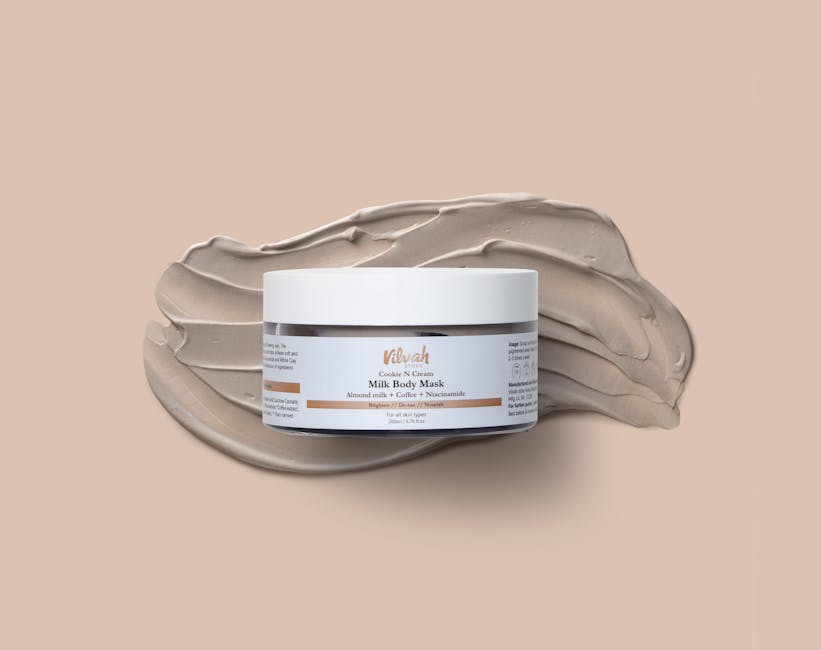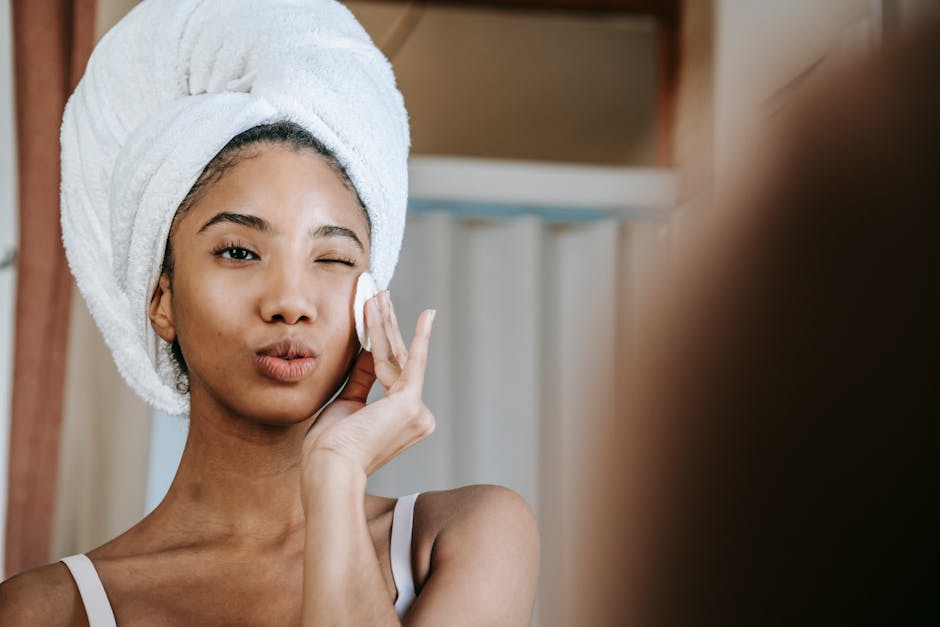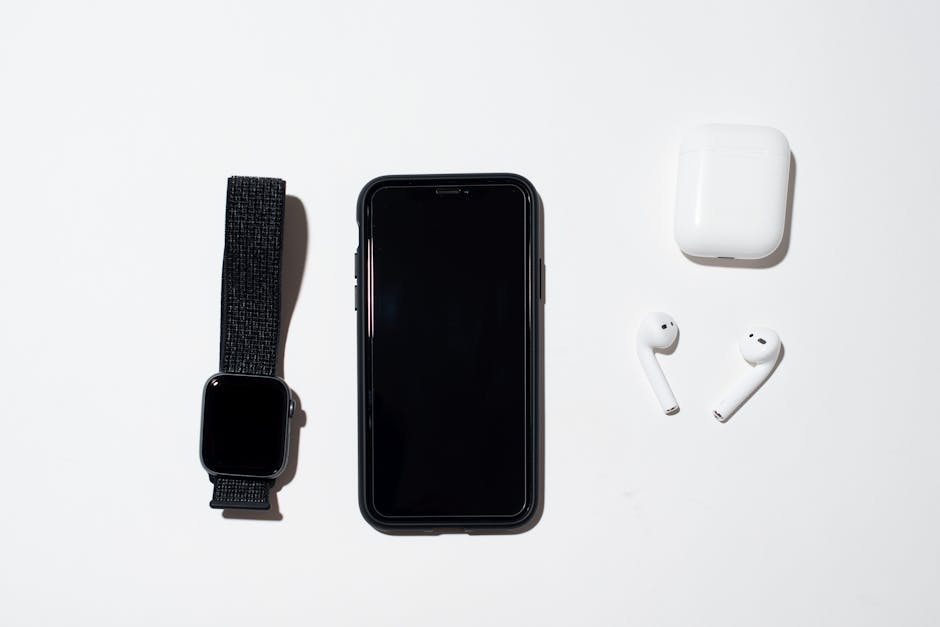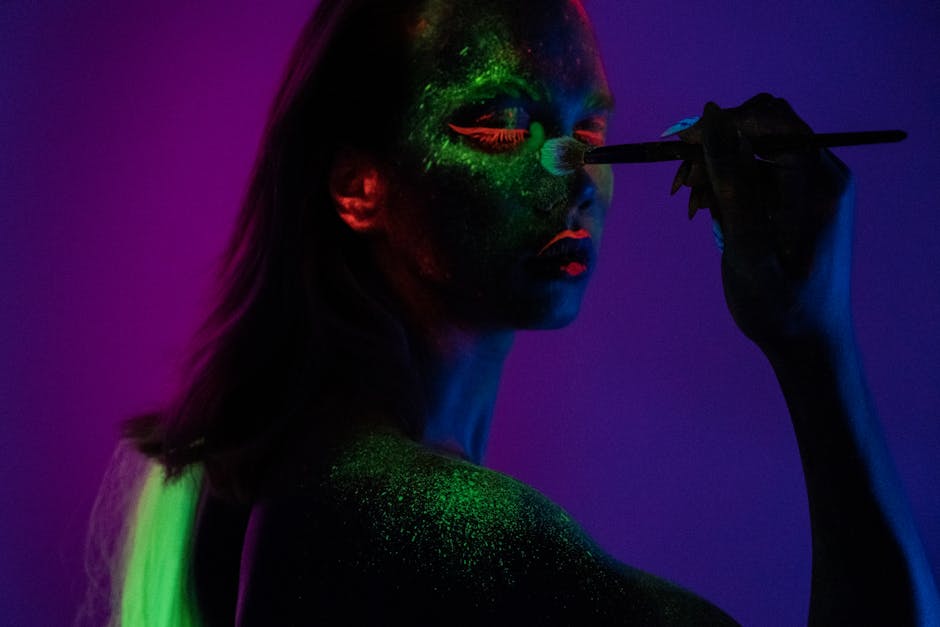Introduction
In this age of growing technological advancement, every industry is dabbling in the wonders of Artificial Intelligence (AI), and the beauty industry is no exception. Topical creams, oils, and home remedies have given way to apps that scrutinize users’ skin, providing a tailored regime aimed at tackling individual skincare concerns. Here, we march into the realm of AI infusion in skincare apps, exploring its inception, applications, and remarkable potential.
The rise of technology within the beauty industry isn’t just a trend; it’s an evolution. From digital consultations to personalized beauty product recommendations, technology has revolutionized the way we approach and interpret beauty and skincare. Now, adults are just as likely to consult an app on their phone as they are to seek advice from a dermatologist.
This fresh uprising of AI-driven skincare apps blends cutting-edge tech with a human touch, offering tailored skincare advice, pointing out water, oil and pore levels, and even identifying potential skin conditions. Understanding how deep these roots penetrate is the key to unlocking the capabilities of AI-enabled beauty solutions.
So, if you’ve ever wondered about that skincare app you downloaded or are simply curious about the intersection of technology and beauty, you’re at the right place. Buckle up as we delve into the transformative world of AI and skincare!

Personalized Skincare Through AI
In a world brimming with burgeoning technology, the beauty industry isn’t one to be left untouched. Especially when it comes to skincare, personalization is the buzzword – and AI is leading the charge. Ever wondered how your smartphone app knows exactly whether you have a dry, oily, or a combination skin type? The answer is Artificial Intelligence.
The key to effective skincare lies in understanding one’s unique skin characteristics, a task AI does remarkably well. Modern skincare apps integrate machine learning algorithms and facial recognition technologies to analyze your skin, recognize patterns, and identify traces of common conditions such as wrinkles, dark circles, acne, or rosacea. Based on this analysis, they then provide personalized skincare recommendations – from suggesting specific products matched to skin type to proposing ideal skincare routines curated just for you.
The benefits of such personalization are manifold. For one, it eliminates the guesswork that often goes into finding the right skincare product or regime. No longer do users need to play the trial and error game or trust advertisements blindly. AI helps to address individual skin concerns more directly and efficiently, thus ensuring better and quicker results.
Moreover, personalization adds an extra layer of convenience. It saves users a trip to the dermatologist or beauty consultant and provides advice at their fingertips. And let’s face it – in our fast-paced digital age, who wouldn’t want expert advice with a click of a button?
Yet perhaps the most significant advantage is how it revolutionizes user experience. By tailoring the skincare journey to the individual, users are not just consumers anymore. They’re engaged, active participants in their skincare journey – this metamorphoses their interaction with the app from mere usage to a more immersive, rewarding experience.
To sum up, AI in skincare marks a shift towards demand-driven, user-centric approaches. It caters to varying user needs with precise, actionable advice, turning skincare from a chore into a delightful, personalized experience. And from the looks of it, this is only just the beginning!

Review of Popular AI Skincare Apps
As the trend of integrating artificial intelligence into skincare progresses, several apps have emerged, making a noteworthy difference in our skincare regimens. Let’s dig a little deeper and critically examine some of these trailblazers.
Firstly, allow me to introduce you to ‘HelloAva’. An app that effortlessly combines human expertise with AI capabilities. After conducting a comprehensive online skin assessment, HelloAva recommends suitable skincare products based on your skin type. Their AI chatbot, Ava, is also quite interactive and helpful. As for their user interface, the app scores high with intuitive design, user friendliness, and simple navigation. The overall user experience? Quite smooth with a personalized touch, I must say.
Next, we move on to ‘YouCam Makeup’. It’s primarily an AR and AI-powered makeup virtual trial app but it doesn’t stop there. YouCam’s Skin Diary feature enables users to monitor their skin health over time, providing useful insights for skincare adjustment. With regards to the interface, it’s vibrant and engaging which is great, but some users could find it a bit cluttered. The user experience, on other hand is significantly rich due to the abundance of cosmetic-related features, but its primary focus isn’t strictly on skincare.
Finally, meet ‘SkinVision’. This app relies on AI to conduct an evaluation of your skin for potential signs of skin cancer. A compelling differentiator, but also potentially concerning as it encroaches on medical territory. The interface is relatively minimalistic and to the point. All in all, its purpose is special, but the narrow focus might be better suited for a more niche audience.
In conclusion, each app brings a distinct perspective on utilizing AI for skincare. They vary in primary functions, user interfaces and overall experiences, acknowledging the fact that the skin care journey is intimate and one size certainly does not fit all. The next time you’re baffled by skincare products or concerned about skin health, consider turning to your smartphone; science and technology might just have the answer.

Functionality of AI in Skincare Apps
Exploration into the realm of AI and its functionality in skincare apps can reveal the fascinating technology at play. So, how does your smartphone app come to understand your skin better than you do? Let’s explore this further.
Advanced Artificial Intelligence Technology
At the core of these skincare apps lies advanced AI technology. It primarily operates using ‘convolutional neural networks’ (CNN), a technology derived from machine learning algorithms. This technology allows the app to view, learn, and analyze the data similar to how a human brain does.
Daily Functioning of an AI-Backed Skincare Application
To understand how an AI skincare application functions, let’s go through its daily process:
- You start by taking a photograph of your face.
- The machine learning algorithm analyzes this photo pixel-by-pixel, identifying various skin attributes like red spots, fine lines, wrinkles, dry spots, oily areas, dark circles, and more.
- The app quickly detects your skin issues through thousands, if not millions, of calculations per second. Its evaluations are based on vast amounts of pre-loaded data about various skin conditions.
Additional Data Analysis
Many apps don’t stop at just analyzing your skin. They also consider other factors impacting your skin health like:
- Your environment
- The water you consume
- The types of food you eat
- Your sleep patterns
By aggregating and analyzing this large array of data, AI can provide you personalized skincare advice, similar to what you’d receive during a dermatologist’s visit.
User Feedback and Results
AI skincare apps have been garnering positive feedback from users. Not only have many users reported real-time skin health improvement, but some apps have even conducted studies showing statistically significant skin improvements in most of their users. This adds credibility to the value proposition of AI in skincare.
In Conclusion
Beneath the straightforward exterior of skincare apps are layers of intricate technology. The innovative use of AI algorithms mirrors human learning, evolution, and personalization. The goal is to provide bespoke advice helping you achieve your best possible skin. The power of AI is immense; skincare is just one of the many industries witnessing a transformation due to its capabilities.

Future of Personalized Skincare
As we glance towards the horizon, it’s evident that AI-powered personalized skincare is not just a fleeting trend but an evolutionary stride in the beauty industry. The drive for greater personalization in skincare is only just getting started, promising a future that caters to unique skin characteristics, lifestyle, and environmental factors. Technology, and more specifically Artificial Intelligence, is becoming a key ally in this beauty revolution.
Looking forward, one can expect to see AI becoming a mainstay in our beauty routines. Like an invisible beautician, AI will play a more prevalent role in understanding customers’ specific skincare needs, ensuring that they receive the right products, advice, and treatments necessary for healthy skin.
As the technology evolves and becomes more sophisticated, AI will refine and redefine the personalization of skincare, connecting real-time data about our skin with other critical information from climate, nutrition, and sleep patterns, leading to even more precise skincare recommendations.
As part of this future, more skincare apps will likely emerge, harnessing the power of AI, machine learning, facial recognition, and other advanced technologies to deliver unprecedented levels of customization. This could manifest as interactive mirrors recommending products based on real-time skin analysis or personalized skincare products made-to-order, based on the app’s suggestions.
Meanwhile, augmented reality (AR) coupled with AI, opens up captivating, new possibilities for personalized skincare. Imagine the ability to not just predict, but to visualize how different products or treatments would impact your skin – a potential game-changer in the quest for personalized beauty and the industry as a whole.
In saying that, there will be challenges along this sophisticated path. Data privacy and the ethics of AI are pertinent issues that need to be addressed as technology aeons ahead. But despite these challenges, the perspective of achieving beautifully radiant and healthy skin – thanks to a highly personalized skincare regimen aided by AI – makes this an exciting future to look forward to. So here’s to the future of personalized skincare, where AI meets human needs on a level we’ve never experienced before.

Case Study: From Ordinary to Extraordinary with AI Skincare Apps
Skincare has long been a pursuit of trial and error for countless individuals worldwide. Finding the right routine often demands a lot of patience, commitment, and unfortunately, sometimes disappointment. However, the emergence of AI-powered skincare apps has been a total game-changer. It’s brought about a remarkable revolution, paving the way for personalized skincare regimes tailored to individual needs.
To demonstrate the actual impact of AI in skincare, let’s delve into the real-life experiences of some folks who have transformed their skincare routines and seen awe-inspiring changes in their skin health through the use of these apps.
Take Maria Fernandes, for instance. Maria had dealt with sensitive skin with occasional acne breakouts for years. She recalls cycling through countless over-the-counter treatments to no avail, which left her skin feeling dry and irritated. However, her experience with an AI skincare app was a revelation. Maria used the app for three months, during which she diligently followed the skincare regimen recommended by the app. The changes were astonishing—the acne breakouts reduced significantly, and her skin was noticeably healthier and well-hydrated.
Similarly, ongoing user Samuel Andrews had a constant battle with oily skin, resulting in an unwelcome shiny face most days. Using an AI skincare app over six months, he was able to balance the oil production in his skin. The app suggested specific moisturizers and face washes that were compatible with his skin type, and he soon noted a marked improvement in his skin texture, with the shine considerably lessened.
Meanwhile, Jennifer Miles, who basically had good skin but wanted to address initial signs of aging, found her magic potion in one of the AI skincare apps. Using the app, she was introduced to a skincare routine and products formulated to combat early aging signs. She not only noticed a visible reduction in fine lines but also felt her skin became firmer and more radiant.
These are just a few examples of how AI skincare apps are redefining the skincare routine landscape for individuals worldwide. It’s not an exaggeration to assert that, for many, their skin health has transformed from ordinary to extraordinary, thanks to these high-tech, AI-powered tools. Ultimately, though everyone’s skin is unique, AI skincare apps offer the possibility of bespoke routines that can make all the difference.

Authority and Authenticity of AI Skincare Apps
For many, the idea of trusting an app with something as intimate as skincare can instigate certain qualms. Are these AI skincare apps really reliable? Do they provide advice that is safe and effective? To address these concerns, it is pertinent to delve into the credibility and authenticity of these groundbreaking technological tools.
Firstly, most of the leading AI skincare apps are not standalone, self-learned systems. They are often developed in collaboration with dermatologists, skincare specialists, and seasoned beauty industry veterans. This ensures that the advice dispensed by the app is not only correct but is also aligned with the latest findings in dermatology and skin science. These partnerships underpin the authenticity of the recommendations, remedies, and tips.
Moreover, it’s worth noting that these apps have complex algorithms working behind the scenes. They analyze user information – such as skin type, skin conditions, lifestyle factors, personal skincare goals, and more. They then cross-reference this data with extensive dermatological databases to provide personalized skincare advice. The extent of personalization here is something that’s hard to achieve even in multiple sessions with a human specialist.
Furthermore, apps today are bound by rigorous data protection laws and must undergo meticulous cybersecurity checks. This ensures that the data you share remains confidential and your privacy is uncompromised. Transparency about data usage is now more common, making these apps a safer option for those worried about privacy issues.
However, despite the sound scientific and technological basis of these AI skincare apps, they don’t rule out the necessity for professional medical advice, particularly for severe and persistent skin issues. They are tools meant for guidance, education, and convenience – a supplement to professional care, not a substitute.
In nutshell, while AI skincare apps significantly democratize expertise, their use should be accompanied by sound judgment by users and, where necessary, consultation with healthcare professionals. This balanced approach will ensure that users reap maximum benefits from the union of AI and skincare.

Transformation of Beauty Industry By AI
As we delve deeper into the realm of AI skincare, be prepared to anticipate significant transformations in the beauty industry. Unquestionably, the injection of technology into the conventional, physical world of cosmetics and skincare products, is not just revolutionizing how we perceive beauty care, but also redefining the industry standards and practices.
Notably, the adoption of AI is bringing about an industrious shift from ‘one-size-fits-all’ beauty products to a more personalized care that’s specifically designed according to individual needs. An epitome of this transformation can be witnessed through the rise of AI skincare apps that diligently identify and address unique skin issues, and subsequently tailor a regime for optimal outcomes.
The wider impact stretches beyond just personalised skincare. By virtue of AI’s predictive algorithms and trend analyses, beauty companies are capable of making informed decisions about product development and marketing campaigns. This data-centric approach has given companies a new vantage point for carefully analysing customer behaviour, subsequently improving customer engagement and driving sales.
Nevertheless, there’s another side of the coin – customer sentiment. Initially, the idea of merging technology with beauty care was met with scepticism. But as the benefits started to unfurl, the convergence of AI and skincare began finding its rightful place in bathroom cabinets. The advent of AI has been warmly welcomed by tech-savvy millennials for whom unique, personalised experiences weigh more than brand loyalty. However, not all sections of the society are equally welcoming to this change. There exists understandable apprehension among older generations unaccustomed to technology’s leap into beauty care.
Holistically speaking, AI skincare apps have brought about tectonic shifts in the beauty industry. Balance, however, is fundamental. Platform providers must ensure they respect user anxieties and promote a harmonious blend of authentic human touch with AI’s precision and customization. Yet, considering all factors, the transformation is evident – AI is no longer simply a tool, but rather a guiding force leading the way in the beauty industry.

Conclusion
As we wrap up our deep dive into the realm of AI in the beauty industry and its ground-breaking contribution to personalized skincare, let’s take a moment to recap the highlights.
From understanding how this cutting-edge technology conscientiously personalizes skincare routines, to unmasking the science behind it, we’ve journeyed through the nuances of the different AI-operated skincare apps, their functionality, and their credibility. All framed with rich insights from real case studies portraying transformative skincare experiences.
Evidently, these technological advancements reflect an interesting yet exciting transformation of the beauty industry. They don’t just offer a new way to decode our skin health, but also usher in a new era dominated by precise, personalized, and convenient skincare solutions.
In this thick of blending technology with skincare, it would be fascinating to welcome a future where AI could analyze our skin health simply by scrutinizing our selfies or perhaps even predicting potential skin issues before they visibly emerge.
However, while we remain captivated by the promise of AI-driven skincare, it is essential to remember that these apps, while astoundingly advanced, are tools meant to complement, not replace, advice from skincare or dermatology professionals.
In conclusion, the world of beauty and skincare is becoming increasingly intertwined with technology, with AI steering this symbiotic relationship. Whether you’re a skincare novice or a self-confessed skincare junkie, embracing the AI revolution could potentially up your skincare game.
So go on, explore these opportunities. Discover the wonders that AI in skincare offers. Who knows, maybe your journey from ordinary to extraordinary skin health is just an app download away. Happy exploring!
